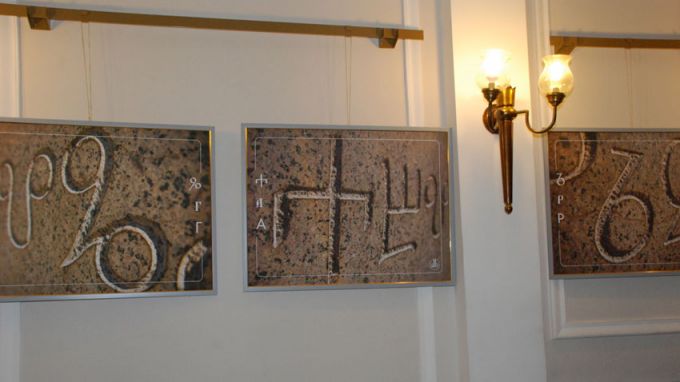
One of the most respected days on the Bulgarian holiday calendar – 24 May, is the Day of letters and the Bulgarian alphabet created in the second half of 9th century. This day takes us centuries back and reminds of a piece of heritage which has cast its spiritual light on many foreign lands and cultures.
In the days prior to 24 May, an exhibition opened at the Bulgarian Academy of Sciences (BAS) featuring Bulgarian alphabets – because after all, the present-day alphabet is not a one-time event.
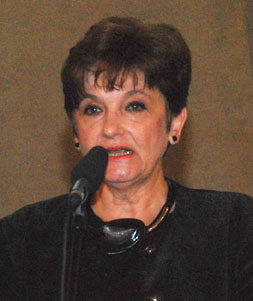 Prof. Elka Mircheva from the Institute for Bulgarian Language at BAS specifies:
Prof. Elka Mircheva from the Institute for Bulgarian Language at BAS specifies:
„The Bulgarian alphabet is something to pride on – and for a few reasons. The foremost among them takes us to the work of the holy brothers Cyril and Methodius and the fact that they created an original alphabet, completely new, based on the dialect they knew in detail. They were born in Thessaloniki. At that time the city was densely populated with compact Slavic Bulgarian population who spoke a variety of an eastern Bulgarian dialect close to the Rhodope Mountain region dialects. The two brothers used exactly that dialect to create the alphabet. Their exceptional input which is recognized as unattainable after them is the fact that they succeeded in finding a precise letter for every sound. In this way they could account for the specific features of the Bulgarian language.”
Prof. Elka Mircheva quotes Chernorizets Hrabar, a Bulgarian monk and writer from the end-9th, early 10th century, who wrоte that for a long time the Slavs were using strokes and notches, most probably runes. Later in time they began using Latin and Greek letters. The monk however rightfully asked: „How could anyone possibly write zhivot /life/ or shirota /breadth/ or Bog /God/ with Greek letters?”
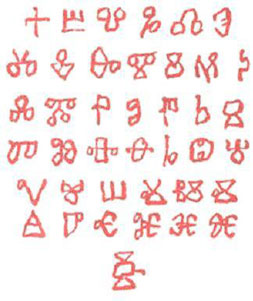
It is often claimed that Cyril and Methodius did not create the earliest Slavic alphabet – the Glagolitsa – for the Bulgarian people but rather for the Moravian Slavs on a commission by Prince Rostislav, and that they never went to Bulgaria.
“All this is to a great extent true but expounded like this it denies the Bulgarian contribution into the very beginning of the Slavic script. Indeed, Cyril and Methodius went on a mission as political missionaries,” Prof. Mircheva comments. “Political and spiritual affairs at that time of the Middle Ages were closely linked. The two brothers were clerics but also politicians who were sent to Moravia with a very specific assignment. At that time Constantinople and Rome were fighting for supremacy in a Europe that was gradually Christianized.”
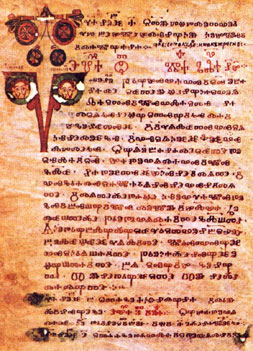
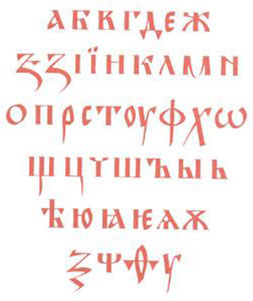
Bulgaria’s contribution is also the creation of the Cyrillic script – a Slavic alphabet with very clear and perfectly applicable orthography. The Glagolitic script was strange in terms of design, unusual in Central Europe and within the boundaries of the Byzantine geopolitical influence. “This led to a version in which using 24 letters from the Greek alphabet were taken and further 12 letters were added to the Cyrillic for the specific Slavic sounds. These twelve letters were taken from the Glagolitic alphabet,” Prof. Elka Mircheva from the Institute for Bulgarian Language at BAS says in conclusion.
English Daniela Konstantinova
Photos: courtesy of Institute for Bulgarian Language at BASWith a scent of spring and anticipation of the great Resurrection of Christ, Palm Sunday is among the most beloved holidays in Bulgaria. From early morning, people fill the churches and share their joy through prayer at the festive..
The day of Saint Theodore known in Bulgarian as Todorovden is a significant Bulgarian holiday, which is celebrated on the Saturday after Cheesefare Sunday - this year its date is March 8. Todorovden combines pagan beliefs and Orthodox canon..
On February 16, Radio Bulgaria celebrates its 89th anniversary . Throughout these years, our multilingual media has been not only a channel of information, but also an invaluable link with our audience around the world. Today, Radio Bulgaria offers rich..

+359 2 9336 661
